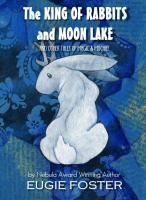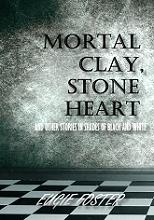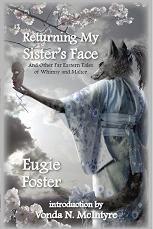I sometimes get emails from folks with writing questions, and a lot of the questions I see have to do with marketing and getting feedback on their work—which is why I put together the Markets and and Workshops pages on my website (and unless we’re buds and I’ve agreed to critique something of yours, please don’t send me your unpublished novel/story/manuscript to crit or edit. I simply don’t have the time). But a friend asked me a few writing questions that aren’t about marketing or feedback, and I wanted to share my take on them:
Q: What is there to write that hasn’t been written 100 times already?
Realistically? Nothing, probably. There’s always the chance of someone surprising me, so I don’t want to say “nothing” definitively. But the basic structures, themes, plots, and character tropes have been told and retold since before stories were written down.
When I write, I’m aware that whatever story I tell probably isn’t going to be original. Hell, I love fairy tales, and it doesn’t get much more “been done” than that. But y’know, Shakespeare didn’t write original stories either. He was shameless and boldfaced about swiping material from various sources. And he was, in my opinion, the greatest writer of the English language evah.
The trick, the goal, the thrill is in telling a story well and imbuing it with yourself, your voice, your perspective. If you write a good story, your readers won’t care that its underlying theme is ancient or that it’s a re-imagined fairy tale or whatever.
Q: How are you supposed to write a female character without people crying “Mary Sue”?
There’s nothing intrinsically wrong with Mary Sue characters so long as the Mary Sue-ness doesn’t impair the story.
My academic background is in psychology, and writing for me is a very introspective process. I often pick apart pieces of my personality—my flaws, my fears, my foibles—to stick into my characters, both male and female. Frankly, there’s a bit of myself in most, if not all, of my main characters (and more than a fair share of my antagonists, too). But no matter how much they end up like me, I’ll still torture the hell out of them if the story demands it.
In the end, you can’t worry about what the critics say or let them dictate what you write. You gotta write whatever you’re driven to write.
Q: I used to write fanfic, but writing fanfic essentially means I’m not creative enough to write my own characters or plots, doesn’t it?
No it doesn’t! There are excellent writers out there who started out doing fanfic. Granted, it has major legality issues if you want to be published or make your work publicly available. But even on the publication front, there are a number of fanfic writers who, upon changing character names, tweaked world-building details, and basically removed all the identifying markers of a work being fanfic, have managed to sell and have published their fanfics.
Q: I’ve read a lot of your short stories and you have such a unique voice. I just wish I had that.
In the end, anything that impels you to write is worth writing; any story that you are passionate enough to tell is worth telling. And the only way to find your voice is to quit trying to find it and just write. You already have a voice, a distinctive, compelling, and, yes, unique one. You don’t need to find it; you just need to capture it.









Nice advice. I especialllllllly liked your input on the final question about finding your own voice. Wish someone had told me that about 15 years ago. I wonder if I would have been clever enough to listen.
Pingback: Tweets that mention EugieFoster.com Writing Process: What to Write and Finding Your Voice -- Topsy.com
Pingback: nanowrimo woes – 15,206 words « geekpyxie